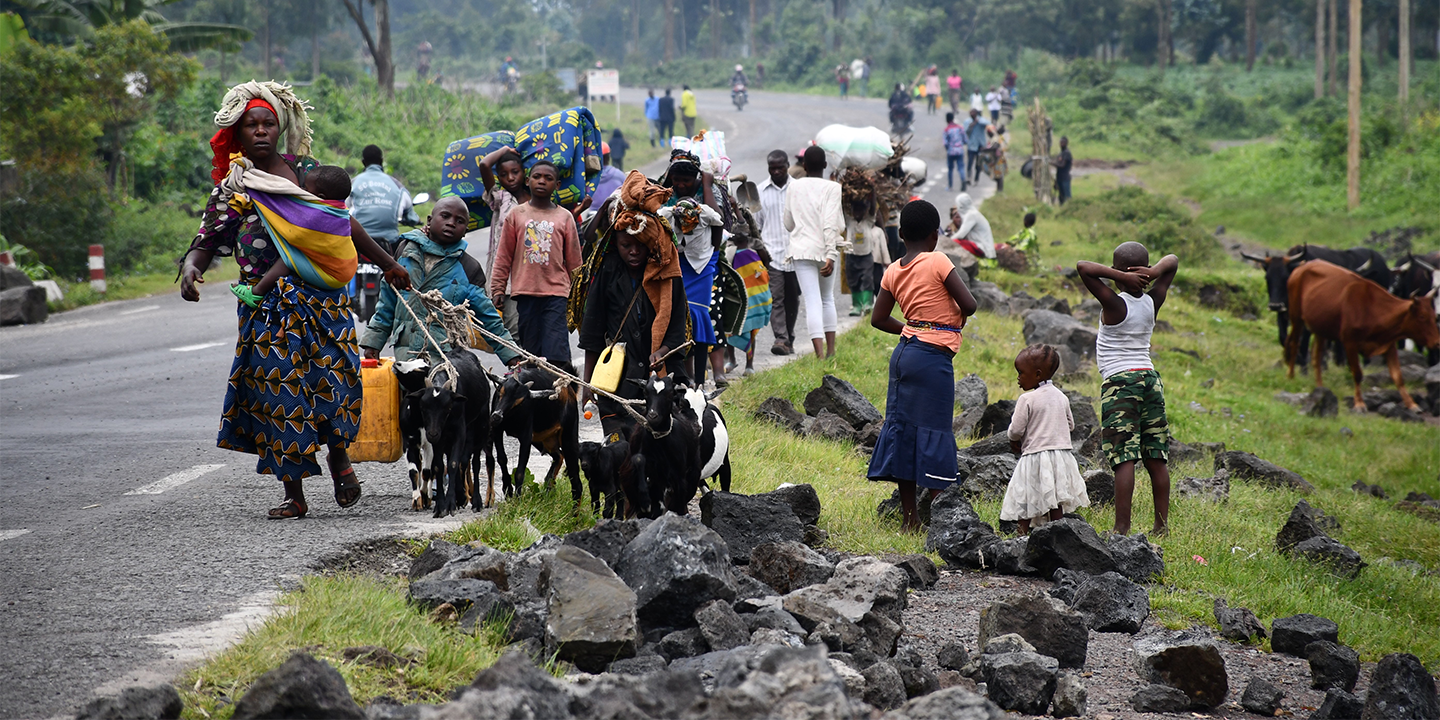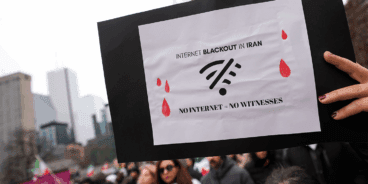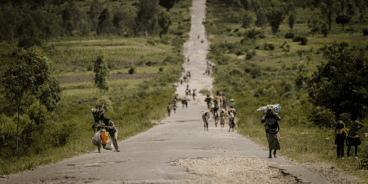

Atrocity Alert No. 326: Democratic Republic of the Congo, Myanmar (Burma) and Mali
Atrocity Alert is a weekly publication by the Global Centre for the Responsibility to Protect highlighting situations where populations are at risk of, or are enduring, mass atrocity crimes.
CIVILIANS PAY A HEAVY PRICE FOR RENEWED VIOLENCE IN NORTH KIVU, DR CONGO
Since 11 November the Democratic Republic of the Congo’s army (FARDC) and fighters from the March 23 Movement (M23) armed group have traded heavy fire in villages near Goma, heightening risks to populations in the capital of North Kivu province. The group’s proximity to Goma has incited panic among inhabitants and caused a fresh wave of mass displacement.
Large-scale clashes between M23 fighters and the FARDC that have been ongoing in North Kivu since March have intensified since 20 October when M23 launched a renewed offensive in Rutshuru and Nyiragongo territories. Since 20 October at least 188,000 people – primarily women and children – have been displaced in Rutshuru alone. Nearly half of those displaced have gathered in makeshift camps on the outskirts of Goma, including schools, hospitals and places of worship. Community leaders near the frontlines in Rutshuru have reported that approximately 60,000 people remain stuck in territory controlled by M23.
Bruno Lemarquis, UN Humanitarian Coordinator in the DRC, said, “The clashes of recent weeks have made life even more difficult for tens of thousands of people who, for eight months, have been paying a heavy price. It is important that this violence stops so that civilians can begin to return and resume the course of their lives.” According to the UN, attacks on communities in Rutshuru have occurred almost daily since the offensive began. Both sides continue to utilize heavy and explosive weapons, routinely attacking civilian infrastructure, including health centers and schools, and causing civilian casualties.
The World Food Programme reported that suspected M23 fighters targeted six primary schools in Rutshuru and Kiwanja between 6-7 November and forcibly took food stocks. Inhabitants and displaced populations in Rutshuru – considered the breadbasket of Goma – are becoming increasingly isolated as M23-controlled territory has expanded since the end of October. The group has won a string of victories and captured nearly all of Rutshuru and Rwanguba health zones, as well as blocked roads that supply Goma, a similar strategy M23 used when capturing the city in 2012. The lives and livelihoods of millions are threatened because of soaring food prices and shortages.
Since March M23 has committed widespread abuses against civilians, including deliberate killings and indiscriminate shelling, among other possible war crimes. All parties to the conflict must respect International Humanitarian Law to prevent further civilian harm. The international community should suspend military assistance to governments found to be supporting the M23 and other abusive armed groups active in eastern DRC. All parties to the conflict must take steps to find a political solution to the ongoing crisis.
MYANMAR MILITARY KILLS CIVILIANS IN RAKHINE STATE MASSACRE
Last week, on 10 November, Myanmar’s (Burma) military – the Tatmadaw – launched a raid on Sin Inn Gyi village in Ponnagyun Township, killing at least nine civilians and storming and torching homes, according to local media reports. The raid appears to have been in retaliation over an explosive attack by the Arakan Army (AA) against a Tatmadaw truck that was carrying food supplies between Paday Thar and Sin Inn Gyi villages earlier the same day. The incident is likely the first massacre committed in Rakhine State since conflict resumed between the military and the AA in August.
In addition to the raid, the Tatmadaw also sent attack helicopters to the township and bombed AA positions. Thousands of residents from villages on the highway linking Yangon and Sittwe, the capital of Rakhine State, were forced to flee amid the indiscriminate shelling and raids. The military’s assault on Sin Inn Gyi village likely amounts to crimes against humanity and war crimes. In response to the attack, the AA has threatened to escalate fighting with the Tatmadaw, which would further threaten the safety of civilians.
Following months of rising tensions, violent conflict restarted in August between the Tatmadaw and the AA, an ethnic armed organization seeking greater autonomy for the ethnic Rakhine Buddhist population in Rakhine State. This marked the end of a ceasefire established between the two forces in November 2020 following a brutal 2018-2020 war. Violence has continued to escalate, and the UN Office for the Coordination of Humanitarian Affairs has reported that more than 16,500 people have been displaced in Rakhine and southern Chin states since August, bringing the total number of people internally displaced from past and present Tatmadaw-AA fighting to over 90,500.
Although the military has perpetrated deadly massacres elsewhere in Myanmar, including the recent bombing of a concert in Kachin State that killed at least 80 people, the attack on Sin Inn Gyi village represents a rare escalation in its fighting with the AA. Liam Scott, Myanmar Expert at the Global Centre for the Responsibility to Protect, said, “Populations in Rakhine and southern Chin states are facing an escalating risk of atrocity crimes as the military has started to wantonly target civilians during its fight against the AA. The international community must take concerted steps to prevent further attacks and indiscriminate shelling. States should start by suspending the supply of aviation fuel to Myanmar and imposing arms embargoes and sanctions against the oil and gas sectors.”
NEW UN REPORT DOCUMENTS RIGHTS VIOLATIONS AND ABUSES IN MALI
The UN peacekeeping mission in Mali (MINUSMA) released a report on 9 November exposing the deadly impact the multidimensional crisis in Mali continues to have on innocent civilians across the country. MINUSMA documented evidence of massacres and hundreds of human rights violations and abuses perpetrated by the Malian defense and security forces, allied mercenaries from the Wagner Group and fighters from armed Islamist groups affiliated with al-Qaeda and the so-called Islamic State Sahel Province. Between 1 July and 30 September MINUSMA verified 375 violations and abuses of human rights and International Humanitarian Law (IHL), including enforced disappearances, arbitrary arrests, summary executions and conflict-related sexual violence. The actual figure is likely higher given that MINUSMA has been prevented from accessing sites of various alleged crimes and massacres.
The security situation in Mali has deteriorated since the beginning of 2022 as armed Islamist groups have taken advantage of the lack of security presence to expand their activities. In the northeast regions of Gao and Ménaka, there has been a sharp increase in attacks targeting civilians since March. Armed Islamist groups affiliated with the Islamic State have launched coordinated attacks on dozens of villages and killed hundreds of civilians, targeting primarily ethnic Dawsahak (or Daoussak) civilians, forcing tens of thousands of people to flee. During the reporting period, MINUSMA documented at least 148 human rights violations in Gao and Ménaka, meaning that these two regions account for more than a third of the total violations recorded.
Although armed Islamist groups are the primary sources of violence and insecurity across Mali, the defense and security forces have also committed atrocities, particularly during Operation Kélétigui. Rather than curtailing the activity of armed Islamist groups, the operation has resulted in civilian harm, particularly for populations in the regions of Bandiagara, Douentza, Gao, Mopti and Ségou. MINUSMA documented 162 violations of human rights and IHL attributable to the defense and security forces and their allies – including killings, sexual violence, arbitrary arrests and looting – nearly half of the total violations recorded. Prior to the MINUSMA report, Malian defense and security forces and mercenary fighters had been accused of massacring civilians, including in Moura, Mopti region, and Hombori, Douentza region, earlier this year.
Christine Caldera, Central Sahel expert at the Global Centre for the Responsibility to Protect, said, “It is essential that the Malian transitional authorities ensure their counterterrorism operations are undertaken in strict compliance with international humanitarian and human rights law and work to prevent further atrocities. The authorities must strengthen their coordination with MINUSMA and guarantee that the Mission can carry out its mandate, particularly freedom of movement and its human rights investigations.”
Related Content


Atrocity Alert No. 465: Iran, Israel and the Occupied Palestinian Territory and Myanmar (Burma)
